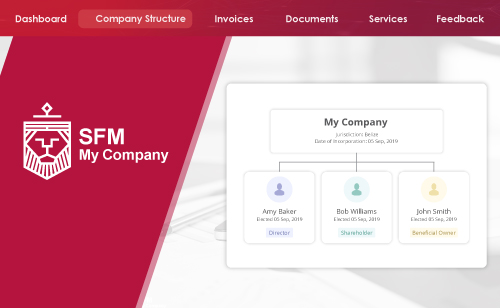Implementation of economic substance requirements and its impact on UAE entities

In November 2018, the Organization for Economic Co-operation and Development (“OECD”) released new global standards to prevent substantial business activities from being relocated to “no or only nominal tax” jurisdictions, unless they have economic substance in that jurisdiction. The objective is to prevent low-tax jurisdictions from attracting profits from certain substantial activities, without having economic substance in that jurisdiction, and thus ensure that taxable profits cannot be artificially shifted away from the countries where the value is created.
There are different types of activities covered by these standards, many of which are financial services related including banking, insurance, fund management, finance and leasing and holding intellectual property. Other activities that are also in scope include shipping, headquarters, holding companies, distribution and service centers.
The European Union (“EU”) is also working on improving international tax governance by identifying jurisdictions that are not complying with international standards, encouraging them to implement positive changes in their tax legislations and global practices through cooperation or through blacklisting. In context, the EU is maintaining a list of non-cooperative jurisdictions for tax purposes which is regularly updated.
Most of “no or only nominal tax” jurisdictions such as British Virgin Islands (“BVI”) or the United Arab Emirates (“UAE”) have already addressed OECD’s and EU’s concerns by implementing economic substance requirements. Companies who earn income from one or more relevant activities must meet the economic substance requirements within the jurisdiction where the company is registered. Failure to create and/or maintain proper economic substance might lead the company and/or its officers to incur penalties unless the company can demonstrate to be tax resident in a foreign jurisdiction.
Who is subject to UAE economic substance requirements?
On the 30th of April 2019, the UAE Cabinet has released with immediate effect the Cabinet of Ministers Resolution No.31 of 2019 (the “UAE Regulation”) concerning the implementation of economic substance requirements for all in-scope UAE entities that carry on certain relevant activities.
The UAE Regulation applies to all UAE entities, including mainland, free zone, or offshore entities, that carry on a "Relevant activity", except if the entity is directly or indirectly owned by the UAE government (both federal and local). On this basis, UAE sovereign investment funds and other UAE government related entities do not need to comply with economic substance requirements.
By “Relevant activity”, the UAE Regulation refers to the following categories:
- Banking
- Insurance
- Fund management
- Lease-finance
- Headquarters
- Shipping
- Holding company
- Intellectual property (“IP”)
- Distribution and service center
Companies who earned income from one or more of the above-mentioned activities during a reportable period must meet economic substance requirements within the UAE territory during the same period unless the entity can demonstrate being tax resident in a foreign jurisdiction.
What are the economic substance requirements?
Determining the level of substance required is subjective in nature and may vary from one case to another.
In general, an entity that is subject to economic substance requirements will have to comply with the following requisites:
- Conduct the relevant “core income generating activities” in the UAE
- Be “directed and managed” in the UAE
- Reference to the level of activities performed in the UAE:
- Have an adequate number of qualified full-time employees in the UAE
- Incur an adequate amount of operating expenditure in the UAE
- Have adequate physical assets in the UAE.
The UAE regulation allows the outsourcing of some or all of the relevant activities to a third-party service provider as long as (1) the service provider has the adequate substance in the UAE, (2) the outsourced activities are conducted in the UAE, (3) the outsourced activities are properly supervised and (4) there is no double counting of the outsourcing provider resources.
Furthermore, while some activities such as holding business activities are subject to reduced substance requirements, other activities related to IP are subject to very stringent substance requirements and it is highly recommended to seek proper legal advice from a specialist to ensure compliance with the UAE Regulation.
What are the reporting requirements and its impact on UAE entities?
All UAE entities are required to report certain information on an annual basis to the competent authority to confirm whether the company has conducted any relevant activity during the reportable period.
Failure to report accurate information or to demonstrate economic substance when applicable can lead to penalties between AED 10,000 and AED 50,000 in the first year and between AED 100,000 to AED 300,000 as of the second year. Additional sanctions such as suspending, revoking or not renewing the UAE entity or exchanging information with foreign competent authorities might be applied by the UAE competent authorities.
Key Takeaways
The introduction of economic substance requirements is a milestone for the UAE towards the alignment with the OECD’s and EU’s directives.
Anyone with a business in the UAE should take this opportunity to reassess their governance structure and operating model in the light of the UAE economic substance requirements and ensure their business model is compliant with the UAE regulation, especially if conducting a relevant activity according to the UAE Regulation.
If you are looking into setting up a new business in the UAE you should consider whether you need to have economic substance while preparing your business model to ensure you will manage to comply with the UAE regulation.
Share this news on:



